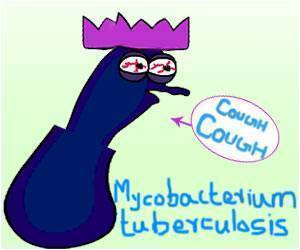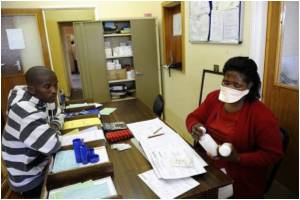In the fight against tuberculosis -an infectious disease that is widespread the world over, leading immunologists expect to see some clear advances.

Kaufmann attributes advances such as this in the fight against infectious diseases to the greater depth of knowledge acquired in recent decades about the body's own immune system defences. No fewer than three Nobel laureates who have played a major part in these discoveries are currently participating in the Lindau Nobel Laureate Meeting, which opened on Sunday. Jules Hoffmann from France, Bruce Beutler of the USA and Rolf Zinkernagel of Switzerland will be delivering presentations on the challenges facing modern immunology, one of the main emphases of the week-long programme. Between now and Friday, a total of 37 Nobel laureates will be engaged in an exchange of ideas with aspiring young scientists: over 600 selected undergraduates, doctoral students and post-docs from 80 countries, with the focus on physiology and medicine.
Stefan Kaufmann, Founding Director of the Max Planck Institute for Infection Biology and Professor of Microbiology and Immunology at the Charité in Berlin, is one of the two scientific chairpersons of the meeting and played a major role in defining the programme. He has a clear perspective on the direction in which his research area will continue to develop: "Over the next few years we must come to understand the immune system in the context of systems biology."
One of the keys to this understanding lies in identifying the molecular and functional diversity of immunocompetent cells. Another lies in investigating the complex interactions with the body's own, as well as foreign cells and substances. This knowledge will provide us with new approaches to the prevention and treatment of infectious diseases such as tuberculosis, and help to improve our understanding of allergies, autoimmune diseases and the body's own cancer surveillance mechanism.
The complexity of the biological and biochemical foundations that underlie the human immune system is one reason why tuberculosis, which has existed for thousands of years, is still being combated with a vaccine that is itself almost a hundred years old, and has proven to be of little effect; and why a six-month course of antibiotics is required to treat infected patients. The pathogen Mycobacterium tuberculosis skilfully evades the weapons available to the body, as well as to medicine. "The pathogen establishes itself in macrophages and obstructs an efficient immune response," Stefan Kaufmann explains. Inside these phagocytes, which actually support the body's immune system defences, the bacteria can remain inactive and survive for long periods of time, and so escape the majority of antibiotics. The thick, impermeable fat layer in the cell wall also provides protection for the pathogen.
"The old BCG vaccine against tuberculosis primarily activates only helper cells. The trick with our new vaccine is to additionally activate the killer cells, which enables us to trigger an improved immune system response," Kaufmann continues. In addition to research into vaccines, innovative treatments are also being investigated which attempt to entice the bacteria out of their macrophage hiding places.
 MEDINDIA
MEDINDIA



 Email
Email










